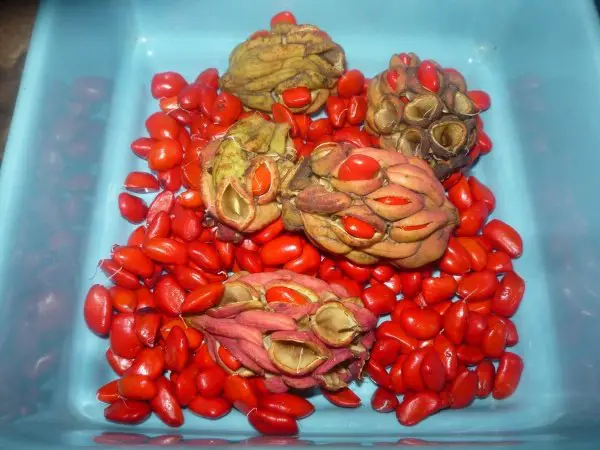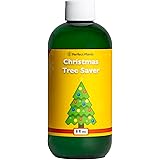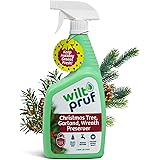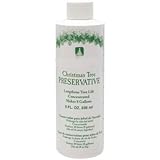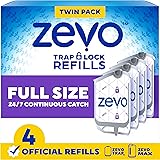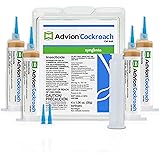Are magnolia seeds poisonous to dogs? This is a common concern among dog owners who want to ensure the safety of their furry friends. The answer is yes, magnolia seeds can be toxic to dogs if ingested. As pet parents, it’s important to be aware of the potential dangers lurking in our surroundings, even in seemingly harmless plants.
In this article, we will delve into the topic of magnolia seeds and their impact on dogs’ health. So, if you’re wondering about the potential risks and how to protect your canine companion, keep reading.
Are Magnolia Seeds Poisonous to Dogs?
Magnolia trees are known for their beautiful blossoms and lush foliage, and they can be a stunning addition to any garden or landscape. However, if you have a furry friend at home, you may be concerned about potential hazards that certain plants, including magnolias, may pose to dogs.
Understanding Magnolia Seeds
Magnolia seeds, also known as magnolia cones or magnolia fruits, are the seed pods that develop after the flowering period of a magnolia tree. These seed pods are typically reddish-brown in color and can vary in size depending on the species of magnolia.
Read More: About Can Magnolia Trees Be Planted Close to a House?
Potential Dangers of Magnolia Seeds for Dogs
While magnolia seeds may be visually appealing, it’s essential to consider their potential impact on your dog’s health. Here are some key points to be aware of:
- Magnolia seeds contain chemical compounds: Magnolia seeds, like many other parts of the magnolia plant, contain chemical compounds such as magnolol and honokiol. These compounds have been studied for their potential health benefits in humans, but their effects on dogs are not well-researched. It’s important to proceed with caution when it comes to your dog’s exposure to these compounds.
- Possible gastrointestinal issues: Ingesting magnolia seeds can potentially cause gastrointestinal issues in dogs. The seeds are hard and can be difficult to chew, leading to possible digestive discomfort or even blockages if a large amount is consumed.
- Allergic reactions: Just like humans, dogs can have allergic reactions to certain plants. While magnolia allergies are not common in dogs, it is still a possibility. If your dog shows signs of an allergic reaction after coming into contact with magnolia seeds or any other part of the plant, such as difficulty breathing, swelling, or itching, it’s crucial to seek veterinary care immediately.
- Choking hazards: The shape and size of magnolia seeds can present a choking hazard, especially for small dog breeds or dogs that tend to gulp down their food without chewing properly. If your dog is prone to this behavior, it’s best to keep them away from magnolia seeds.
Preventive Measures
To ensure your dog’s safety around magnolia seeds, consider taking the following preventive measures:
- Keep your dog away from magnolia trees: If you have a magnolia tree in your yard, it’s a good idea to supervise your dog and prevent them from accessing fallen magnolia seeds or seed pods.
- Regularly inspect your yard: Take the time to inspect your yard for any fallen magnolia seeds or seed pods and promptly remove them before your dog has a chance to investigate or ingest them.
- Train your dog: Teach your dog basic commands such as “leave it” or “drop it.” This can be beneficial in redirecting their attention away from potentially harmful objects or substances, including magnolia seeds.
- Consult with a veterinarian: If you have any concerns about your dog’s safety around magnolia seeds or if they have accidentally ingested them, it’s essential to consult with a veterinarian. They can provide specific guidance based on your dog’s health and circumstances.
Other Potential Hazards of Magnolia Trees
While magnolia seeds may pose some risks to dogs, it’s important to note that other parts of the magnolia tree can also present potential hazards. Here are a few additional considerations:
Magnolia leaves:
Magnolia leaves can be toxic to dogs if ingested in large quantities. They contain compounds such as magnolol and honokiol, similar to the seeds. Ingesting a few leaves may not cause severe issues, but it’s best to prevent your dog from consuming them.
Wood and bark:
Wood and bark from magnolia trees are generally considered non-toxic to dogs. However, chewing on tree parts can lead to splinters, which may cause injuries or blockages if swallowed. Monitor your dog’s behavior around magnolia trees to prevent any mishaps.
Flowers:
While magnolia flowers are non-toxic to dogs, they are not recommended as edible treats. Keep an eye on your dog during walks or outdoor activities, as they may attempt to munch on fallen flowers, potentially causing an upset stomach or other digestive issues.
Magnolia extracts and oils:
Magnolia extracts and oils, often used in various products, can be highly concentrated and should not be directly applied to your dog’s skin or ingested without veterinary guidance. Always consult with your vet before using any magnolia-derived products on your dog.
In conclusion, magnolia seeds can potentially pose risks to dogs if ingested in large quantities. They contain chemical compounds that may cause gastrointestinal discomfort or blockages. It’s best to prevent your dog from accessing fallen magnolia seeds and seed pods. Remember to consult with your veterinarian if you have any concerns or if your dog accidentally ingests magnolia seeds. By taking the necessary precautions and being observant, you can help keep your furry friend safe and healthy around magnolia trees.
Read More: About The Pros and Cons of Planting Wildflowers
Frequently Asked Questions (FAQs)
Magnolia seeds, while not highly toxic, can cause gastrointestinal upset in dogs if ingested in large quantities. It is best to keep them out of reach to avoid any potential issues.
If a dog consumes magnolia seeds, they may experience symptoms such as vomiting, diarrhea, abdominal pain, loss of appetite, and lethargy. It is important to monitor them closely and seek veterinary care if these symptoms persist or worsen.
Ingesting small amounts of magnolia seeds is unlikely to cause severe harm to dogs. However, it is best to discourage them from eating these seeds altogether to prevent any potential adverse effects.
To prevent your dog from eating magnolia seeds, it is essential to keep them away from areas where magnolia trees grow. Regularly check your yard for fallen seeds and promptly clean them up. Additionally, providing your dog with chew toys and engaging them in play can redirect their attention away from potential hazards.
If your dog consumes magnolia seeds, monitor them closely for any symptoms of poisoning. Contact your veterinarian for further guidance. They may recommend inducing vomiting or providing supportive care to alleviate any potential complications.
While magnolia flowers are generally not toxic to dogs, consuming a large quantity may cause mild gastrointestinal upset. It is always advisable to prevent your dog from ingesting excessive amounts of any plant material.
Apart from the seeds, other parts of the magnolia tree, such as the bark and leaves, contain substances that can cause mild gastrointestinal irritation if ingested in large amounts. It is best to keep your dog away from these parts of the tree as well.
In addition to magnolia seeds, various other outdoor hazards can pose risks to dogs. These include toxic plants, pesticides, fertilizers, mushrooms, wild animals, and stagnant water. Familiarize yourself with these potential dangers and take appropriate measures to keep your dog safe during outdoor activities.
Final Thoughts
In conclusion, it is important for dog owners to be aware that magnolia seeds can be toxic to dogs. These seeds contain a substance called magnolol, which can cause gastrointestinal upset, vomiting, and diarrhea in dogs if ingested. While not all dogs may have a severe reaction, it is best to err on the side of caution and keep magnolia seeds away from your furry friend. If you suspect your dog has consumed magnolia seeds or is exhibiting any concerning symptoms, it is crucial to seek veterinary attention promptly.
Always prioritize your dog’s safety and well-being by keeping potentially toxic substances out of their reach. So, are magnolia seeds poisonous to dogs? Yes, they can be, and it is essential to take precautions to keep your canine companion safe.
Auto Amazon Links: No products found.
Perfect Plants Christmas Tree Saver 8oz. | Easy Use Xmas Tree Preserver Food | Have Healthy Green Christmas Trees All Holiday Season
$16.99 (as of February 11, 2026 00:40 GMT +00:00 - More info- Product prices and availability are accurate as of the date/time indicated and are subject to change. Any price and availability information displayed on [relevant Amazon Site(s), as applicable] at the time of purchase will apply to the purchase of this product.
VEVOR Tree Watering Bags Slow Release, 4 Pack 16 Gallons Tree Watering Ring, Reusable Refillable Tree Irrigation Ring Water Bags, Heavy Duty Watering System for Shrub Tree Root Drip Irrigation
$29.99 (as of February 11, 2026 00:40 GMT +00:00 - More info- Product prices and availability are accurate as of the date/time indicated and are subject to change. Any price and availability information displayed on [relevant Amazon Site(s), as applicable] at the time of purchase will apply to the purchase of this product.
Wilt-Pruf® Christmas Tree/Cutting Preserver Spray |Preserves Christmas Trees, Wreaths, Garlands, Cuttings and Carved Pumpkins | Reduces Needle Drop | Keeps Cut Trees Fresh Longer | Natural (32 oz)
$21.99 (as of February 11, 2026 00:40 GMT +00:00 - More info- Product prices and availability are accurate as of the date/time indicated and are subject to change. Any price and availability information displayed on [relevant Amazon Site(s), as applicable] at the time of purchase will apply to the purchase of this product.
Mini Decorative Metal Watering Can, Set of 6, Height 1.97 inch, Cute Metal Jug for Hand Crafts,Garden Theme Parties, Home and Refrigerator Decor
$8.99 (as of February 11, 2026 00:40 GMT +00:00 - More info- Product prices and availability are accurate as of the date/time indicated and are subject to change. Any price and availability information displayed on [relevant Amazon Site(s), as applicable] at the time of purchase will apply to the purchase of this product.
Rocky Mountain Goods Christmas Tree Food - 8 oz Tree Preservative - Reduce Needle Drop - Greener Scent - Fir, Pine, Spruce Trees - Extend Tree Life
$9.95 (as of February 11, 2026 00:40 GMT +00:00 - More info- Product prices and availability are accurate as of the date/time indicated and are subject to change. Any price and availability information displayed on [relevant Amazon Site(s), as applicable] at the time of purchase will apply to the purchase of this product.
TERRO Ant Killer Bait Stations T300B - Liquid Bait to Eliminate Ants - Bait System - 12 Count Stations for Effective Indoor Ant Control
$11.97 (as of February 10, 2026 22:06 GMT +00:00 - More info- Product prices and availability are accurate as of the date/time indicated and are subject to change. Any price and availability information displayed on [relevant Amazon Site(s), as applicable] at the time of purchase will apply to the purchase of this product.
Wagner's 53002 Farmer's Delight Wild Bird Food with Cherry Flavor, 10-Pound Bag
$12.48 (as of February 10, 2026 22:06 GMT +00:00 - More info- Product prices and availability are accurate as of the date/time indicated and are subject to change. Any price and availability information displayed on [relevant Amazon Site(s), as applicable] at the time of purchase will apply to the purchase of this product.
OLANLY Dog Door Mat for Muddy Paws 30x20, Absorbs Moisture and Dirt, Absorbent Non-Slip Washable Doormat, Quick Dry Chenille Mud Mat for Dogs, Entry Indoor Entryway Carpet for Inside Floor, Grey
$9.49 (as of February 10, 2026 22:06 GMT +00:00 - More info- Product prices and availability are accurate as of the date/time indicated and are subject to change. Any price and availability information displayed on [relevant Amazon Site(s), as applicable] at the time of purchase will apply to the purchase of this product.
Zevo Flying Insect Trap Official Refill Cartridges - Fits Both Zevo Trap & MAX Indoor Fly Trap - Authentic Trap+Lock Technology to Catch Gnats, House & Fruit Flies (4 Official Refill Cartridges)
$14.97 (as of February 10, 2026 22:06 GMT +00:00 - More info- Product prices and availability are accurate as of the date/time indicated and are subject to change. Any price and availability information displayed on [relevant Amazon Site(s), as applicable] at the time of purchase will apply to the purchase of this product.
Advion Cockroach Gel Bait, 4 Tubes x 30-Grams, 1 Plunger and 2 Tips, German Roach Insect Pest Control, Indoor and Outdoor Use, Roach Killer Gel for American, German and Other Major Cockroach Species
$25.62 (as of February 10, 2026 22:06 GMT +00:00 - More info- Product prices and availability are accurate as of the date/time indicated and are subject to change. Any price and availability information displayed on [relevant Amazon Site(s), as applicable] at the time of purchase will apply to the purchase of this product.

